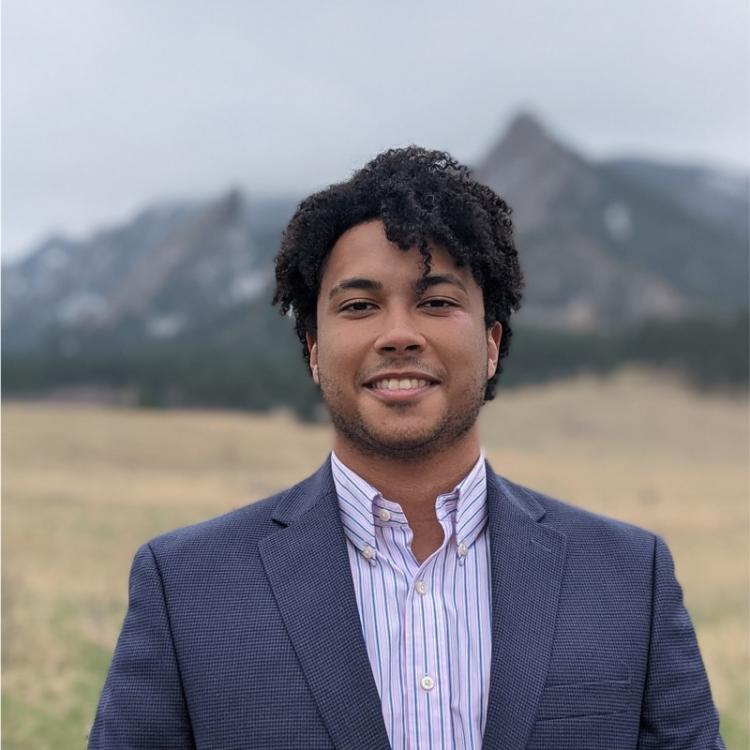Simon Julien, Undergraduate Research Award

“As I began my search for research, I talked to a number of professors and researchers involved in tackling the challenge of developing functional clean energy technologies,” Julien said. “However, I was most intrigued by Dr. (Bri-Mathias) Hodge’s research team because they were asking what seemed to be the most important question: ‘What are the standing obstacles that are preventing national power grids from converting to 100% renewable energy in the near or distant future?’”
Today, Julien is an author on a paper in the journal Solar Energy and is awaiting review on two more that propose a solution to how renewable energy can be controlled enough to provide utility-scale grid support (called ancillary services). His final algorithm for this project is undergoing the patent process with CU Venture Partners, and he is also in the process of launching a startup around the technology.
Hodge, an associate professor in the Department of Electrical, Computer and Energy Engineering and a chief scientist in the Power Systems Engineering Center at NREL, said Julien is the best undergraduate researcher he has worked with in the past decade.
“Since I have met Simon, I have been impressed with his inquisitiveness, enthusiasm and deep desire to learn more about renewable energy and power systems,” said Hodge. “He is a pleasure to work with, and I am sure that he will be successful in whatever endeavor he decides to pursue after completing his studies.”
Julien shared some of his favorite memories from his time at CU, as well as his advice for new engineering students.
What is your favorite memory from your time at CU Boulder?
My favorite memories from CU are from freshman year when I met so many life-long friends and was initially exposed to the real power of science and engineering.
What accomplishment are you most proud of, either academically or personally?
I'm most proud of how my research has turned out and the potential impacts it may have on creating a zero-emission power grid.
What is your plan for after graduation?
After graduation, I will be finishing my master’s degree here at CU Boulder through the BS/MS program.
Tell us about a moment (or moments) when you felt like you hit your stride or felt like you were “officially” a scientist or engineer.
During my first internship at the National Renewable Energy Lab, I quickly realized that the world truly needs passionate engineers and scientists to solve many of its most daunting issues, and I actually have the skills to help dream up a solution! After finding myself surrounded by others equally as passionate about renewable energy and sustainability, I found the drive and confidence I needed to publish three papers and file a provisional patent!
What was the biggest challenge for you during your engineering education? What did you learn from it?
The biggest challenge for me throughout my engineering education has been the coursework. Managing all the homework, reading, studying, projects and research has taught me that this level of dedication is only possible if I am working on a problem that I love and care about.
What is your biggest piece of advice for incoming engineering students?
I would advise them to find a fun and supportive group of friends that have some of the same extracurricular hobbies you do! I would also say to try and find research or internships as early as possible because it really opens your mind up to why you are going through all these struggles of engineering!

